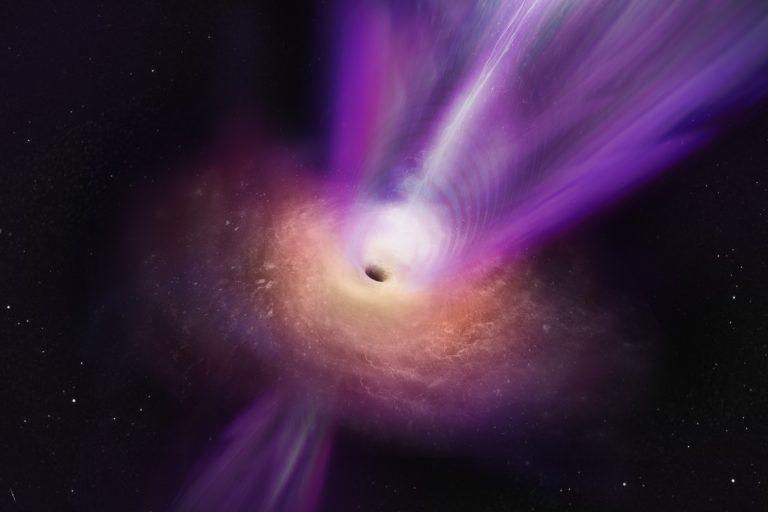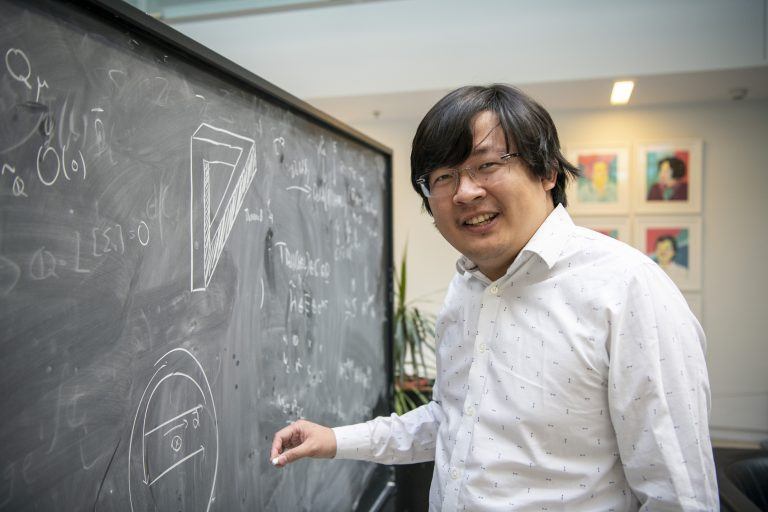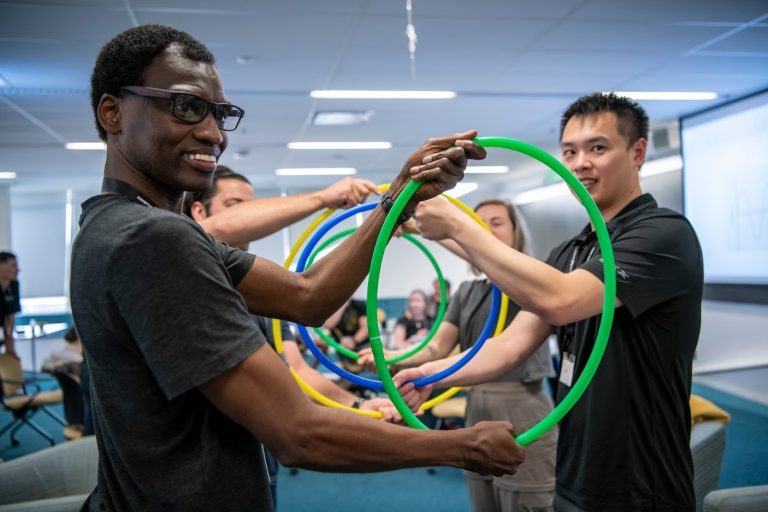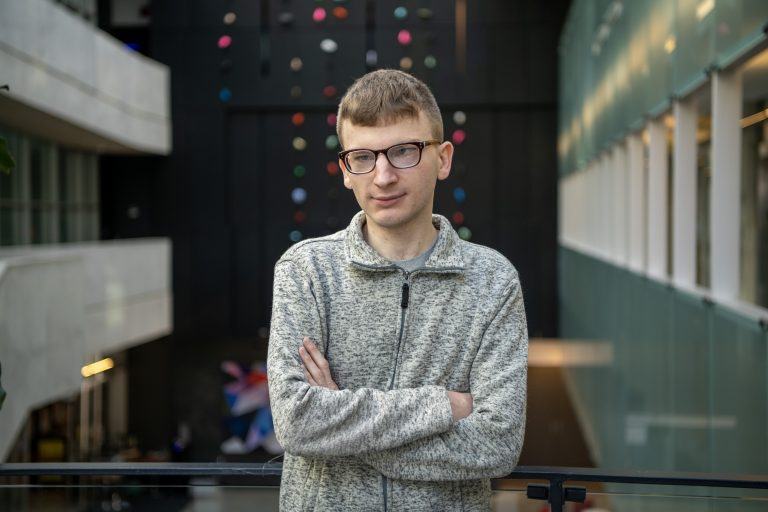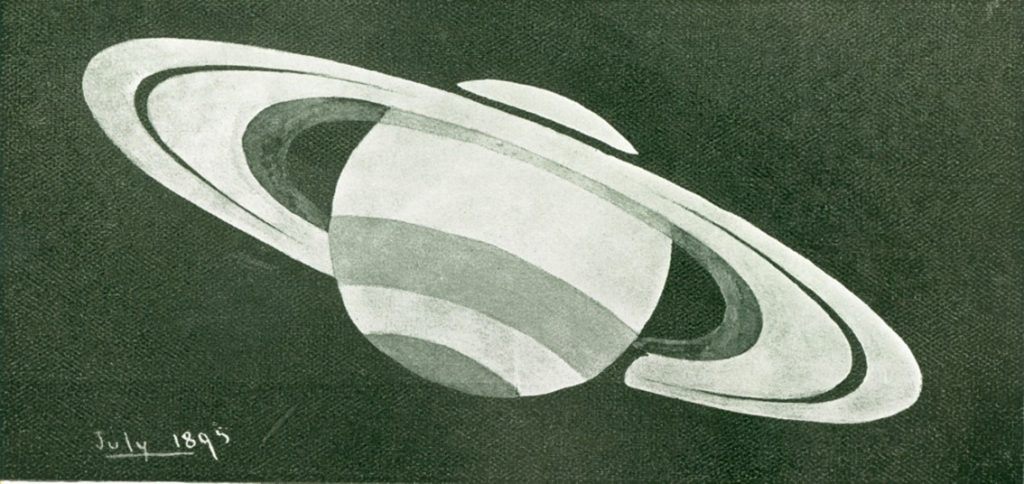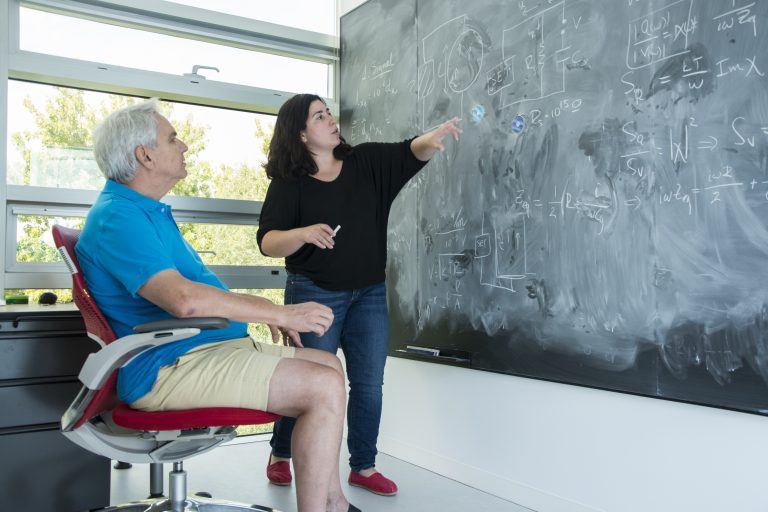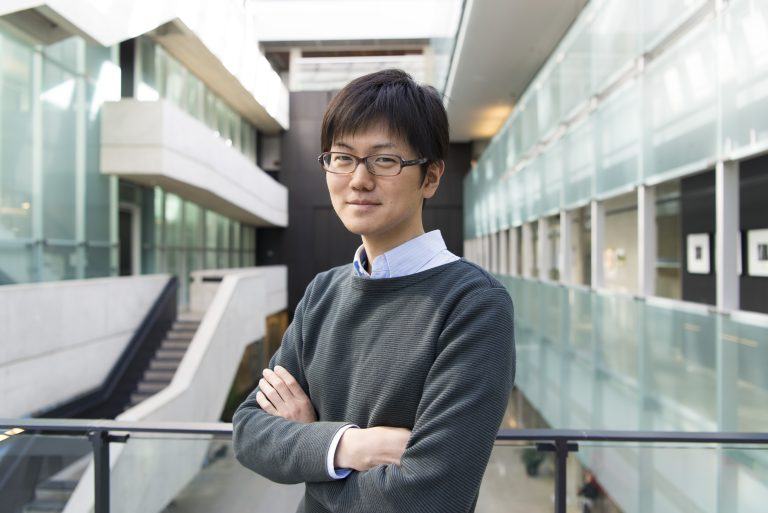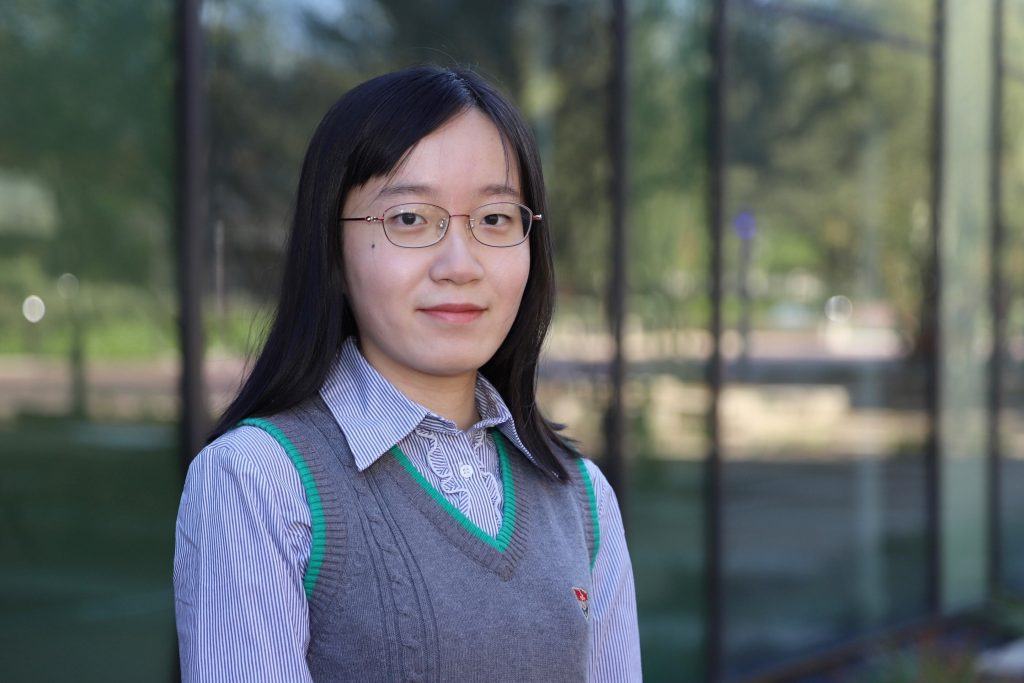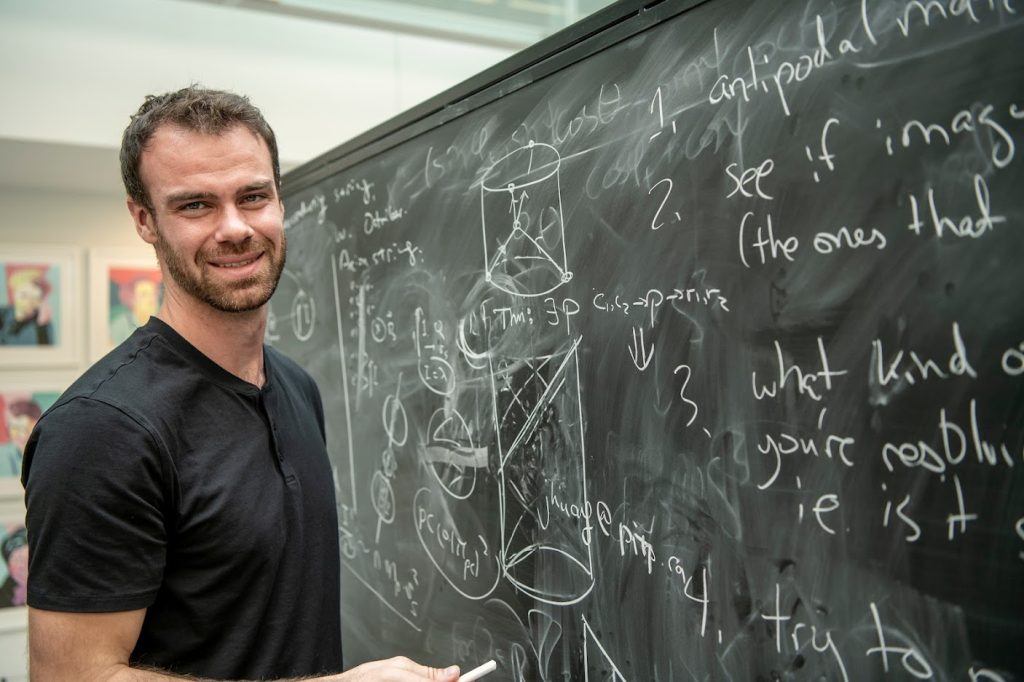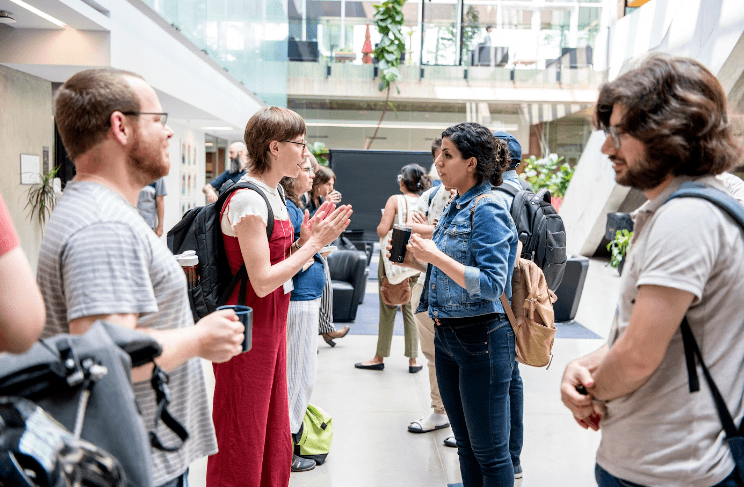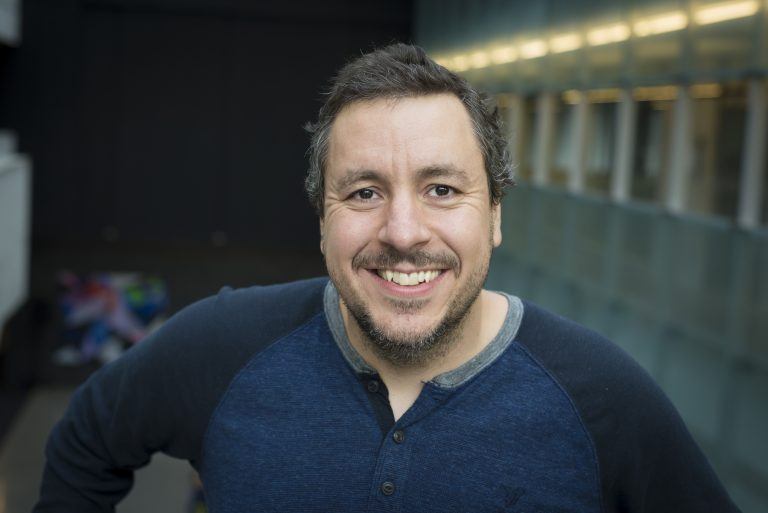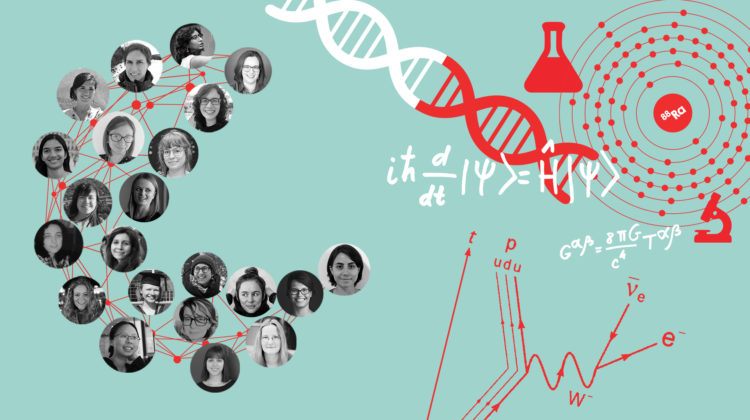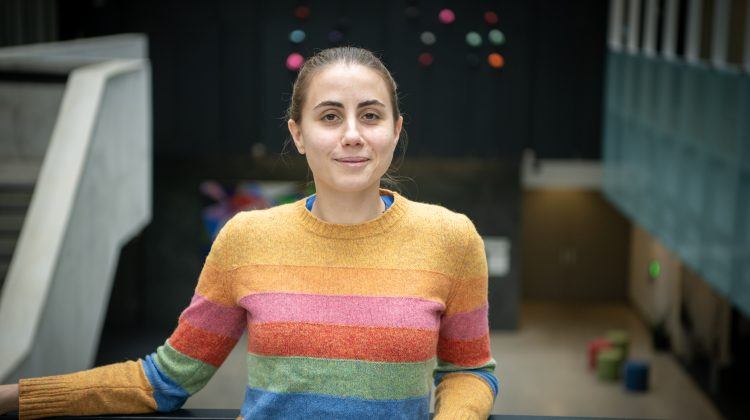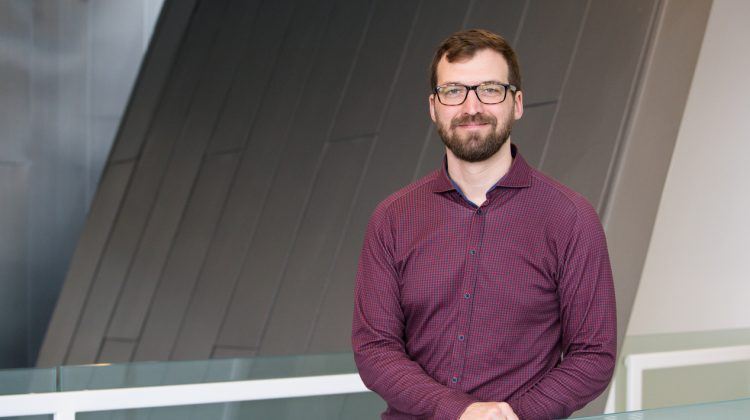2023: A Brilliant Year at Perimeter
From quantum to cosmos, 2023 was a busy year at the Perimeter Institute! Including exciting research breakthroughs, deep conversations, and announcements that could shape the future of science as we know it.
As the year comes to a close, take a look at some of the most electrifying happenings from inside the Perimeter.
Quantum101 – Quantum Science Explained!
Welcome to the quantum realm! Join Katie Mack, Perimeter Institute’s Hawking Chair in Cosmology and Science Communication, over 10 short forays into the weird, wonderful world of quantum science.
Secrets of the Universe – Hiding in Plain Sight? Neil Turok Public Lecture
In his Perimeter Public Lecture webcast on October 25, 2023, Perimeter Director Emeritus Neil Turok shared his insights into the basic laws of the universe and their surprising simplicity – including his latest work on an alternative to the cosmological inflation model.
Astronomers produce first image of a black hole’s shadow with a powerful jet
The new research published in Nature “significantly enhances our view of the environment of black holes and the origins of astrophysics jets,” says Perimeter’s Avery Broderick. Learn more here.
Shining a light on light bosons
Several currently unsolved mysteries in physics might be explained by the existence of as-yet-unknown particles. Of the various kinds of hypothetical particles that are possible, a subset known as “light bosons” are one of the more promising. Perimeter Faculty member Junwu Huang is on the hunt for these elusive particles, read all about it here.
EinsteinPlus helps physics teachers “turn on the sparkle of curiosity” in their classrooms
Read about EinsteinPlus 2023, a week-long professional development event put on by Perimeter Institute’s Educational Outreach department in July to help high school teachers from Canada and other parts of the world find new and engaging ways to bring modern science teaching to their students.
Conversations at the Perimeter
Are you fascinated by the mysteries of our universe — and the brilliant scientists working to unravel them? Enthralled by quantum mechanics, general relativity, black holes, dark matter, and the search for a grand unifying theory of everything? If so, be sure to listen to Conversations at the Perimeter, a podcast exploring big ideas from the quantum to the cosmos.
People of PI: Quantum materials pioneer Dominic Else
Put a bunch of simple particles together, and radically new things can happen. That’s the thrill – and the challenge – of the new science of quantum materials. Few people know it better than Dominic Else, one of Perimeter’s newest faculty members. Read all about it here.
Government of Canada launches National Quantum Strategy
“Quantum technologies will shape the course of the future and Canada is at the forefront, leading the way,” Minister Champagne said to the scientists and leaders from Canadian research and industry in attendance. “I look forward to collaborating with businesses, researchers and academia as we build our quantum future.” Learn more here.
Artists who shaped astronomy, then and now
From 19th century astro-sketchers to 21st century image processors, artists and astronomers have worked hand-in-hand for centuries. The results have been out of this world. Read all about it in our article here.
Searching for relics of the big bang
Asimina Arvanitaki at Perimeter and Visiting Chair Savas Dimopoulos say there might be a way to use the Earth itself to find big bang cosmic neutrinos. They have proposed an arduous expedition to find the very earliest relics in the universe – the big bang neutrinos– stretching back in time 13.8 billion years, from when the universe was a mere second old. Learn more about their work here.
The Meaning of Spacetime: Juan Maldacena public lecture webcast
Juan Maldacena studies black holes, string theory, and quantum field theory. In his July 27 Perimeter Public Lecture webcast, he described some ideas that arose from the study of quantum aspects of black holes. They involve an interesting connection between the basic description of quantum mechanics and the geometry of spacetime. He also delves into how wormholes are related to quantum entanglement.
Black holes enter the laboratory
A new protocol puts the black hole information paradox to the test in a laboratory – and promises to drive progress in quantum technologies here on Earth. Learn more about the work of Beni Yoshida, a Perimeter faculty member and expert in quantum information here.
Perimeter welcomes new Research Faculty member Sisi Zhou
Zhou’s research touches on some of the most pressing challenges facing researchers who want to turn quantum theory into practical, useful applications, especially in the growing field of high-precision quantum measurement – better known as quantum metrology. “I’m looking forward to seeing more practical applications of quantum metrology in the future. We want to enhance the sensitivity of a signal, not just in principle but also in practice,”. Read about her exciting research here.
Introducing Alex May – Perimeter’s New Research Faculty Member
May’s research combines quantum information with quantum gravity, applying ideas from each field to the other. He is also interested in quantum foundations – the underlying mathematical and conceptual basis for quantum theory. “Perimeter is one of the few places that has that expertise,” says May “and I’m excited to interact with the quantum foundations folks.” Read all about his work here.
Hammers & Nails – A Curiosity-Based Approach to Climate Research
Can mathematical methods used by Perimeter researchers inspire new approaches in climate, energy, and biodiversity? On July 17, the Perimeter Institute played host to the first Hammers & Nails climate workshop, read all about the exciting discussions here.
The Jazz of Physics: Stephon Alexander public lecture webcast
In his Perimeter Public Lecture webcast on April 14, scientist Stephon Alexander, a professor of physics at Brown University, demonstrated how the search for answers to deep cosmological puzzles has parallels to jazz improvisation. He also explored new ways that music, in particular jazz, mirrors concepts in modern physics such as quantum mechanics, general relativity, and the early universe.
A new milestone in the hidden world of low-energy physics
Perimeter researchers have established a new framework for determining whether any 2D quantum chromodynamic theory is gapped or gapless, offering insights into the dynamics of low-energy particle interactions that were previously out of reach. Learn more here.

PERIMETER INSTITUTE RECORDED SEMINAR ARCHIVE





















































































